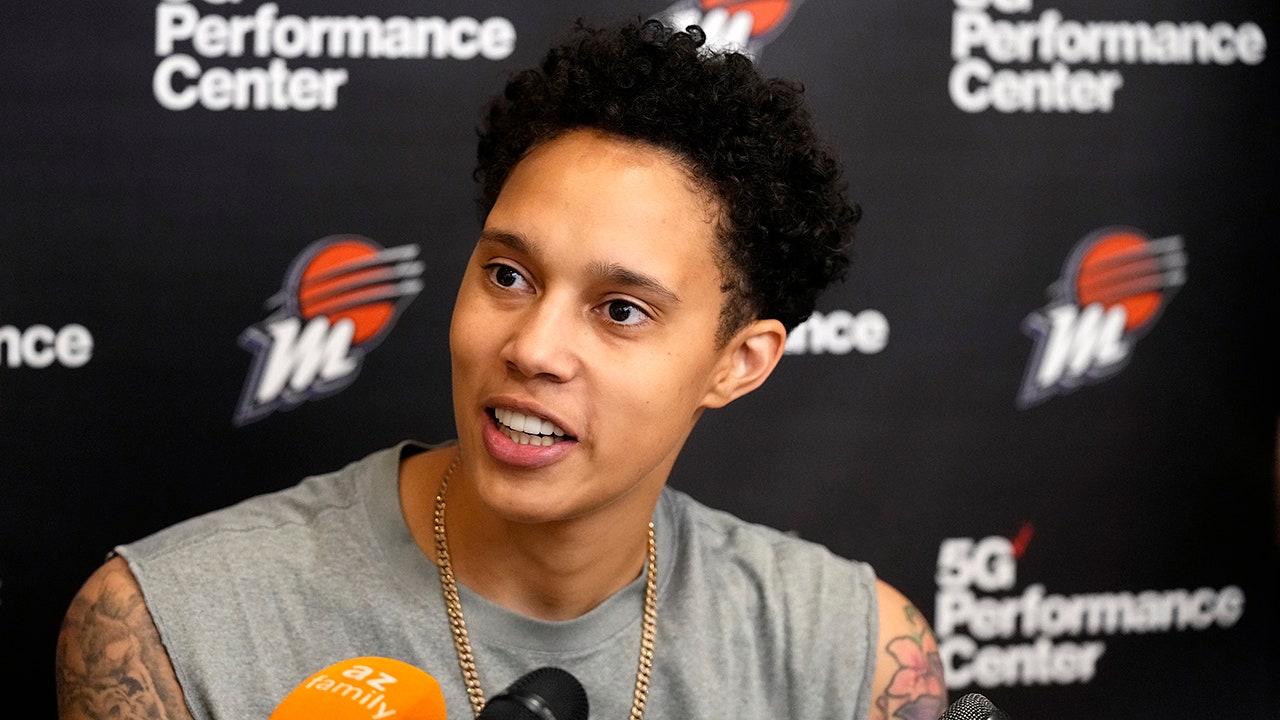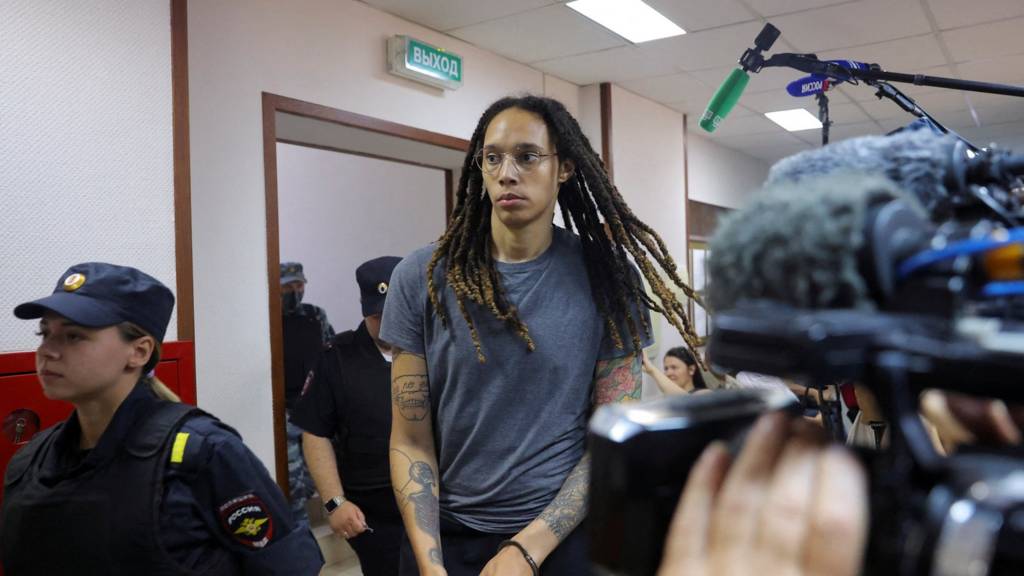In recent years, the name Brittney Griner has become synonymous with excellence in women’s basketball and a symbol of advocacy for LGBTQ+ rights. However, amidst her accolades and achievements, a peculiar question has emerged in public discourse: is Brittney Griner a man? This inquiry seems to stem from a mixture of curiosity, misinformation, and societal perceptions of gender. In this article, we will explore Brittney Griner’s life, her gender identity, and the broader implications of such questions in our society.
As a prominent athlete, Brittney Griner has made significant contributions to the world of sports, particularly in the Women’s National Basketball Association (WNBA). Standing at 6 feet 9 inches tall, her physical stature has often led to misconceptions about her gender. However, it is crucial to approach this topic with sensitivity and respect for her identity. The question “is Brittney Griner a man?” not only reflects societal misunderstandings about gender but also highlights the importance of acknowledging and affirming individual identities.
Throughout this article, we will delve into the factors that contribute to the confusion surrounding Brittney Griner's gender, examine her personal and professional background, and discuss the social implications of such inquiries. Join us as we uncover the truths behind the question: is Brittney Griner a man?
- Unveiling The Mystery Is Britney Grinner A Man
- Uncovering The Origins Where Is Lamine Yamals Mom From
Who Is Brittney Griner? A Brief Biography
Brittney Griner is a professional basketball player who has gained fame for her unique skill set and towering presence on the court. Born on October 18, 1990, in Houston, Texas, Griner’s journey to stardom began in high school, where she excelled in basketball and showcased her talent early on. She attended Baylor University, where she became a national sensation, leading her team to a national championship in 2012 and earning numerous accolades, including the Naismith College Player of the Year award.
Personal Details and Bio Data
| Detail | Information |
|---|---|
| Full Name | Brittney Yvette Griner |
| Date of Birth | October 18, 1990 |
| Height | 6 feet 9 inches (2.06 m) |
| Position | Center |
| College | Baylor University |
| WNBA Team | Phoenix Mercury |
| Nationality | American |
| Gender Identity | Female |
What Are Brittney Griner's Contributions to Basketball?
Brittney Griner has made a significant impact on the world of basketball through her exceptional skills and prowess on the court. Some of her notable contributions include:
- Winning two Olympic gold medals with the United States women’s basketball team in 2021 and 2016.
- Being a six-time WNBA All-Star.
- Setting multiple records for blocks in both college and professional basketball.
- Advocating for social justice, equality, and LGBTQ+ rights.
- Inspiring young athletes, particularly women, to pursue their dreams in sports.
Why Do Some People Ask If Brittney Griner Is a Man?
The question “is Brittney Griner a man?” often arises from societal stereotypes and misconceptions about gender and athleticism. Factors that contribute to this question include:
- Nathan Fillions Family Legacy A Journey Through His Parents Influence
- Unraveling The Height Mystery How Tall Is Tommy Flanagan
- Her height and physical strength, which challenge traditional notions of femininity.
- Media portrayals that sensationalize her appearance and athletic ability.
- Public curiosity about her sexuality and gender identity, amplified by her openness about being a member of the LGBTQ+ community.
- Lack of understanding and acceptance of diverse gender identities.
How Does Brittney Griner Identify? Is She a Man?
Brittney Griner identifies as a woman and has been vocal about her experiences as a member of the LGBTQ+ community. She has openly discussed her sexuality, her relationship with fellow athlete Cherelle Watson, and the challenges she has faced as a public figure. It is essential to respect her identity and recognize that gender is not solely determined by physical appearance.
What Challenges Has Brittney Griner Faced in Her Career?
Throughout her career, Brittney Griner has faced numerous challenges, including:
- Overcoming stereotypes related to her gender and sexuality.
- Dealing with scrutiny and criticism from the media and the public.
- Facing discrimination and bias in a male-dominated sports industry.
- Enduring personal hardships, including mental health struggles and a high-profile arrest abroad.
Why Is It Important to Respect Brittney Griner's Identity?
Respecting Brittney Griner's identity is crucial for several reasons:
- It promotes understanding and acceptance of diverse gender identities in society.
- It helps combat harmful stereotypes and misconceptions related to gender and sexuality.
- It reinforces the importance of individual agency and self-identification.
- It encourages a more inclusive and supportive environment for all athletes, regardless of their gender identity.
What Can We Learn from Brittney Griner's Story?
Brittney Griner's journey serves as a powerful reminder of the importance of embracing diversity and challenging societal norms. Her story teaches us that:
- Labels and stereotypes should not define individuals.
- Everyone deserves respect and recognition for their identity.
- Advocacy for equality and acceptance is crucial in creating a more inclusive society.
- Strength comes from authenticity and being true to oneself.
Conclusion: Is Brittney Griner a Man?
In conclusion, the question “is Brittney Griner a man?” reveals more about societal attitudes toward gender and identity than it does about Brittney herself. As a proud and accomplished woman, Griner has shattered barriers and left an indelible mark on the sports world. It is essential to celebrate her achievements while respecting her identity and acknowledging the challenges she has faced. By doing so, we contribute to a more inclusive society that values diversity and promotes understanding.
Ultimately, the conversation surrounding Brittney Griner’s identity should serve as a catalyst for deeper discussions about gender, representation, and acceptance in our communities. Let us honor her legacy by embracing the complexities of identity and championing equality for all.


